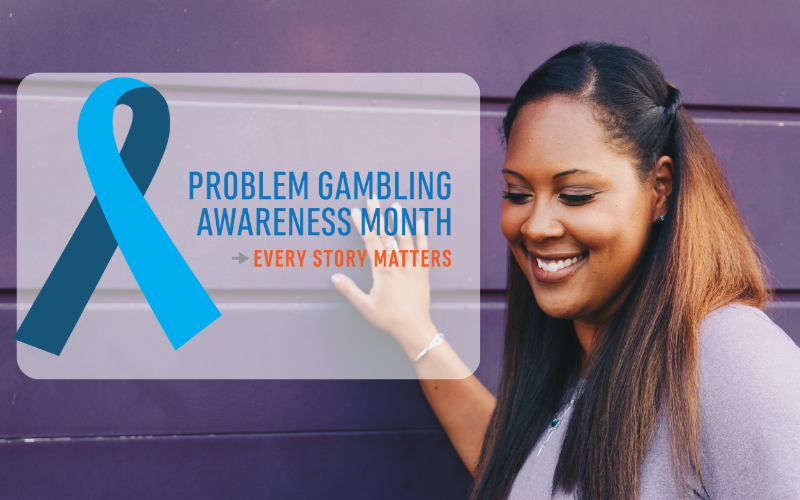
March is National Problem Gambling Awareness Month with the theme Every Story Matters—a chance to build understanding and support for people impacted by gambling disorders (GD). Any positive screening for substance use disorder (SUD) or mental illness should include a gambling assessment, as research has shown that:
- A third to a half of those treated for SUD also have a gambling disorder
- 57% of those with SUD and GD developed the substance use disorder first
- 75% of those in treatment for substance use have a moderate or severe gambling disorder
Of people diagnosed with gambling disorders, 96% have at least one psychiatric disorder:
- 60% have a history of a personality disorder
- 50% have a history of a mood disorder such as depression
- 40% have a history of an anxiety disorder
Gambling can trigger a lapse or relapse for people in recovery from substance use disorders, or a “switch of addictions.” Anything from scratch-offs to casino betting can cause large spikes in dopamine, the brain chemical involved in addiction. The brain may not be able to distinguish between a high caused by using a drug or one from a big win, starting the addiction process all over again.
Deemed the “silent addiction”, many don’t mention their gambling without prompting from a professional, especially when alcohol, drugs, or mental health symptoms are in the spotlight. But gambling disorders can be fatal, as the suicide rate for this group of people is 5 to 10 times higher than for people in the general population.
The video below features individuals from Lancaster County in recovery from gambling disorders, as well as their loved ones. Their stories are important.